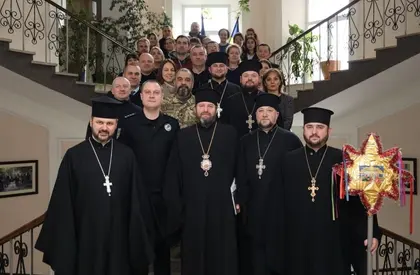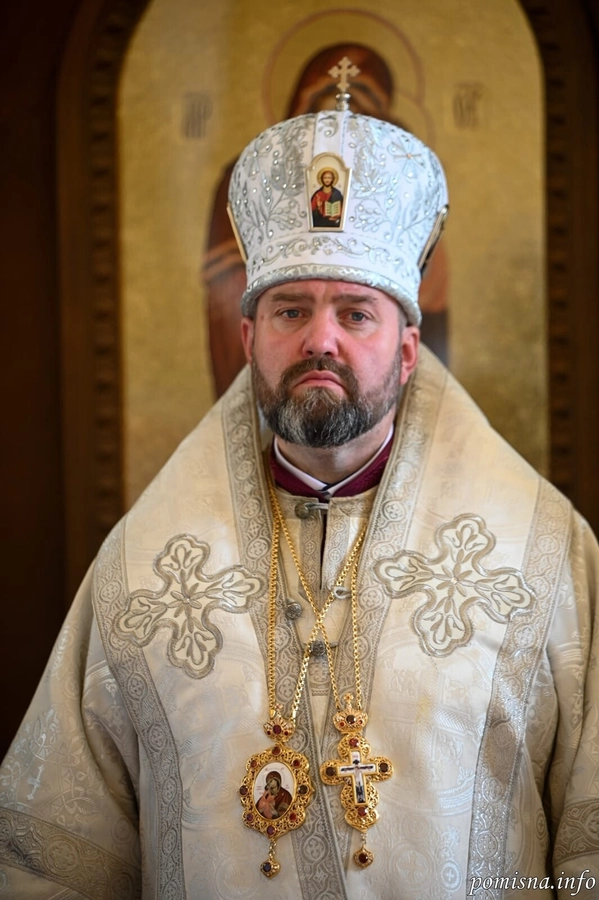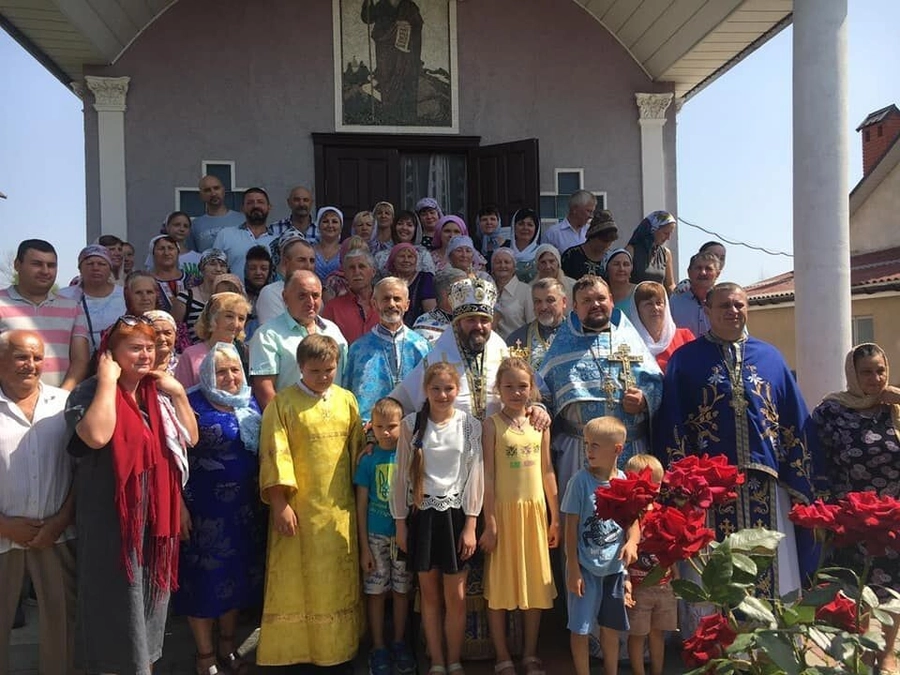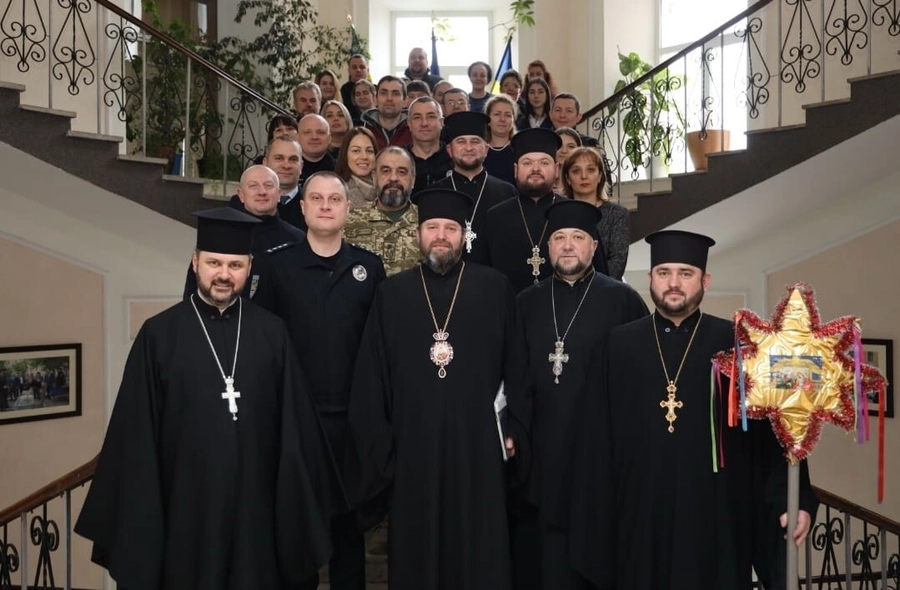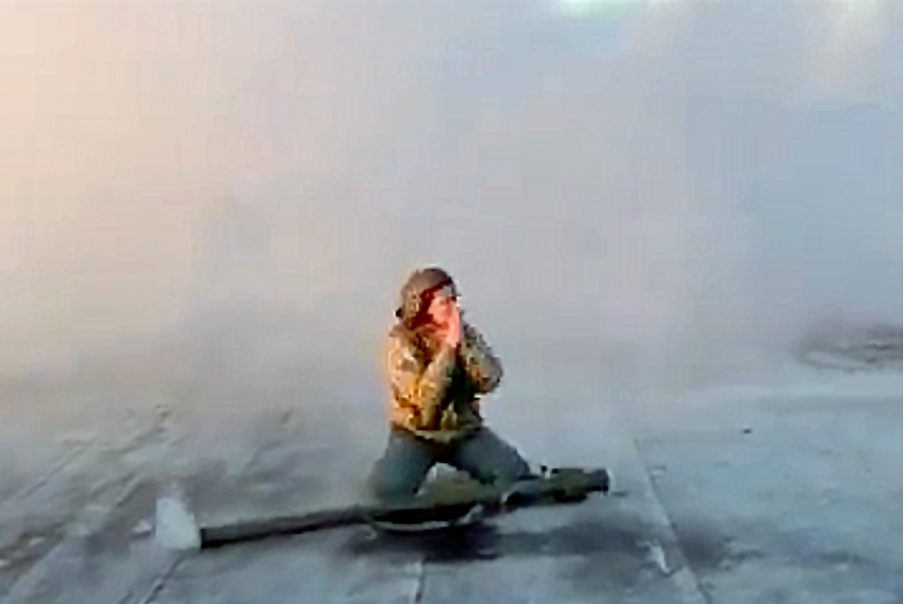During Soviet times, the religious tradition of Christmas was persecuted. In fact, in Russia and Ukraine there is a custom not of a “Christmas gift,” but rather of a “New Year’s gift.”
Now everything is changing, and among the many changes is the Orthodox Church of Ukraine’s choice to celebrate Christmas on Dec. 25 as in most Christian countries.
JOIN US ON TELEGRAM
Follow our coverage of the war on the @Kyivpost_official.
Kyiv Post interviewed His Eminence Athanasius, Archbishop of Odesa and the Baltic, Head of the Odesa Diocese of the Orthodox Church of Ukraine (OCU) about this historical change.
How do you evaluate the changes in Christmas customs over the years?
The custom of giving a New Year’s gift was changed by the Soviet authorities when they mercilessly destroyed the church. In Ukraine, before the Soviet Union, gifts were given on December 19 [according to the Julian calendar] on the feast of Saint Nicholas the Wonderworker, and this tradition, especially in Ukraine, could not be eradicated. That’s why they changed the concept.
Regarding the date of the celebration of the Nativity of Christ, Dec. 25. Until 1924, the entire Church in Ukraine and Russia celebrated according to the Julian calendar, because this was the use in Ukraine and Russia. The Soviet Union carried out a calendar reform in 1924 when it switched to the Gregorian calendar, which was more accurate. The Church did not accept this reform, so all holidays, including Christmas, were moved 13 days ahead, that is, on Jan. 7. So, the Orthodox Church of Ukraine, decided to join the majority of churches [including other Orthodox churches] and adopt the New Julian calendar.

The US and Ukraine’s Circular Predicament
I believe that such changes are correct, they have further distanced Ukrainians from the “Russian world.” In fact, the calendar reform today even shows such a side – which is the Russian Church in Ukraine, and which is the Ukrainian Church in Ukraine. This fact is already positive. I thought that the transition to the New Julian calendar would be painful for the believer, the clergy, even for me, but this did not happen. All the believers of the Odesa Diocese of the OCU accepted easily the calendar changes and adapted to the New Julian calendar since Sept. 1.
“In the realities of war, it would seem that it is not the time to celebrate, but in fact it is not so, because the Christmas of Christ inspires faith and hope for victory in every heart and soul.”
How did the Orthodox Church celebrate Christmas during the war? What does Christmas mean for the Ukrainian people, who are surrounded by mourning and destruction?
Only the date from Jan. 7 to Dec. 25 has changed. All traditions and religious services will be held as usual, complying with the requirements during the air alerts and the order to stay off the streets during the curfew period.
Christ’s Christmas for every Christian is, above all, a holiday of the redemption of the human race from the power of sin. Christ was born so that all people on earth could have eternal life. In the realities of war, it would seem that it is not the time to celebrate, but in fact it is not so, because the Christmas of Christ inspires faith and hope for victory in every heart and soul.
Because just as Christ, having endured earthly suffering, defeated Satan, so Ukraine, having endured torment, suffering and death, will be renewed to a new, better and happy life in peace and prosperity. We have to believe in it, we have to strive for it. And it is the Christmas of Christ that inspires this faith and hope in our hearts today, because the truth will win, because Christ is the Truth and we have the truth, and where there is truth there is God.
How did believers react to this change in the new date of Orthodox Christmas? Was there resistance from traditionalists or disorientation?
Back in January 2023, the Office of the Odesa Diocese held a diocesan meeting of the clergy and faithful of the diocese regarding the new calendar. At the meeting, reports were heard in which the arguments for and against the calendar reform were presented, as well as the historical prerequisites and aspects of the celebration of religious holidays according to the New Julian calendar [which celebrates fixed holidays according to the Gregorian calendar and moveable feasts, such as Easter, according to the Julian calendar]. After that, the question was put to the vote whether the Odesa Diocese would support the calendar reform or not.
Then all representatives from parishes voted “yes” unanimously. Based on the vote, a resolution was adopted that if the Orthodox Church of Ukraine adopts a calendar reform, all the parishes of the Odesa Diocese, without exception, will switch to the New Julian calendar according to the Decision of the Local Council. Therefore, there was no resistance in the parishes of the Odesa Eparchy of the OCU.
Before the Russian invasion in February 2022, the majority of parishes in Ukraine were still under the leadership of the Moscow Patriarchate, despite the birth of the OCU. What is happening in the parishes after Moscow’s aggression?
Unfortunately, Odesa is a region in which the Russian Church and a theological seminary operated, which was a forge for the Russian clergy, even in the days of the Soviet Union. Therefore, in Odesa and after the full-scale invasion of Russia into Ukraine, the clergy and laity remain faithful to the Russian Church, although they call themselves the Ukrainian Orthodox Church.
In fact, this church was, is and will be Russian. The Odesa Holy Dormition Patriarchal Male Stavropegial Monastery has been the residence of the Moscow Patriarchs since Soviet times. Today the monastery is still the residence of the Moscow Patriarch Kirill, and this monastery, since it is Stavropegial – i.e., directly subordinate to the Moscow Patriarch – it cannot be Ukrainian in any way. Thus, the entire so-called Ukrainian Orthodox Church of the Moscow Patriarchate in Odesa and in Ukraine is Russian.
The clergy knows this, but the believers do not, because this “clergy” deceives them: where people want to hear the Ukrainian language in churches, they replace the priests with Ukrainian speakers, which is why the believers stay in those churches. Although there is a tendency for believers to express a desire to change jurisdiction and go under the omophorion of the Orthodox Church of Ukraine, and some did.
Not without problems, though. In fact, people are afraid of court proceedings and quarrels, but most of all people are afraid of threats of anathema from the pro-Russian clergy. Therefore, the process of overcoming the split is very slow, practically at a standstill. Parishioners arrange to pray for Patriarch Kirill, President Putin, the Russian Government and the Russian Army in such churches.
Of course, last Easter a lot of believers came to celebrate in the churches of the Orthodox Church of Ukraine, and now there are more believers in the churches, but they are very few.
You can also highlight the text and press Ctrl + Enter


